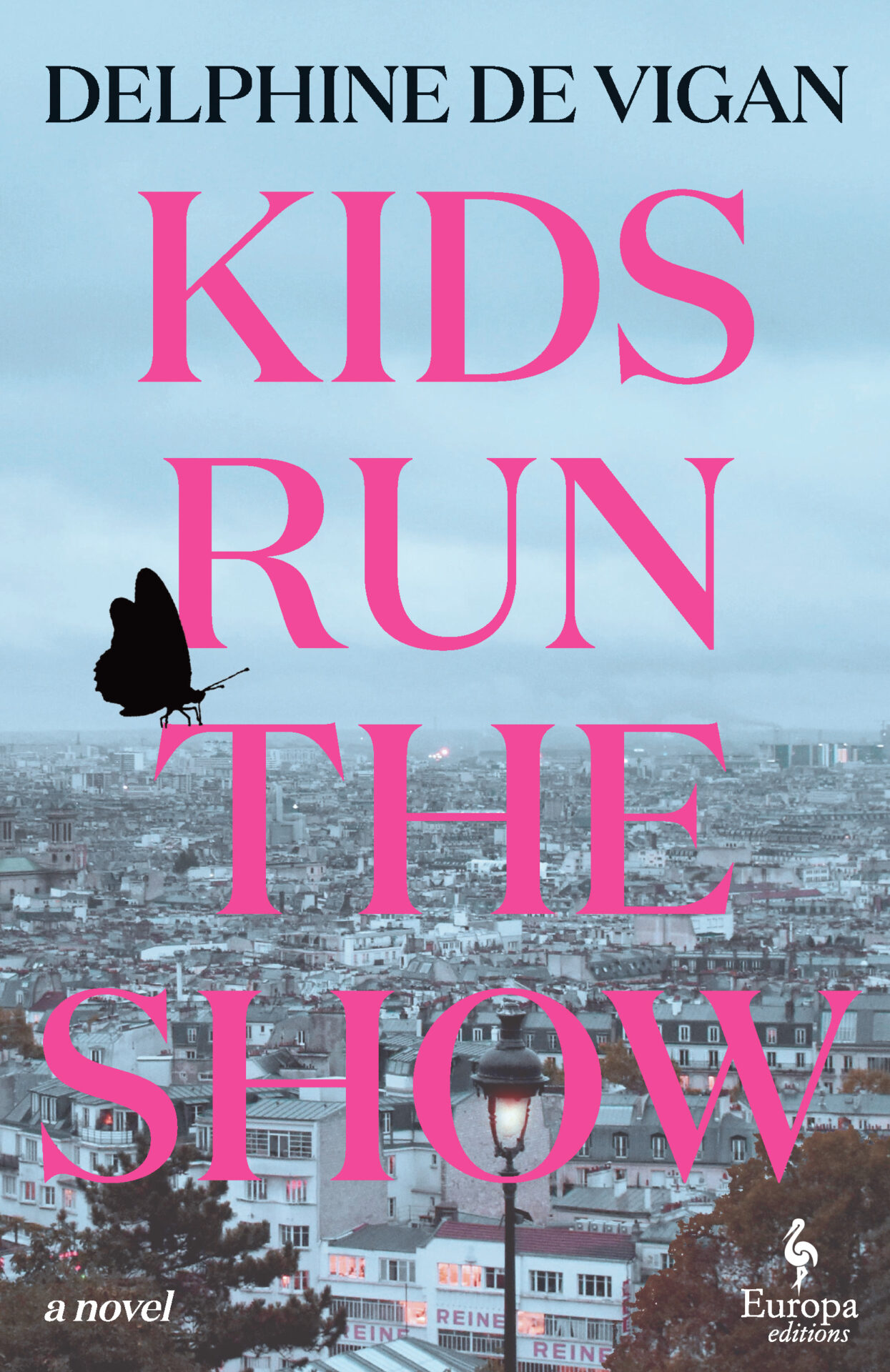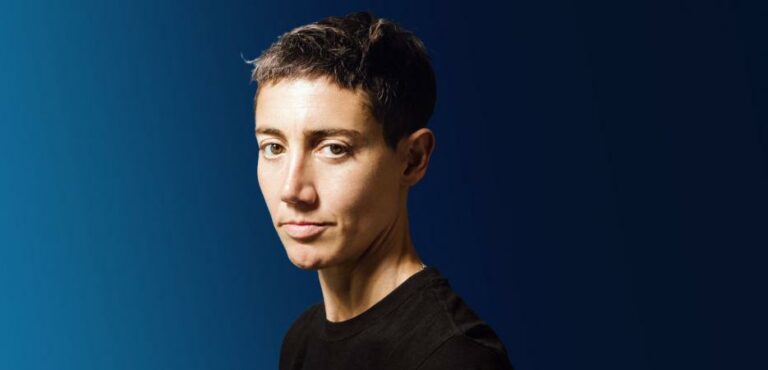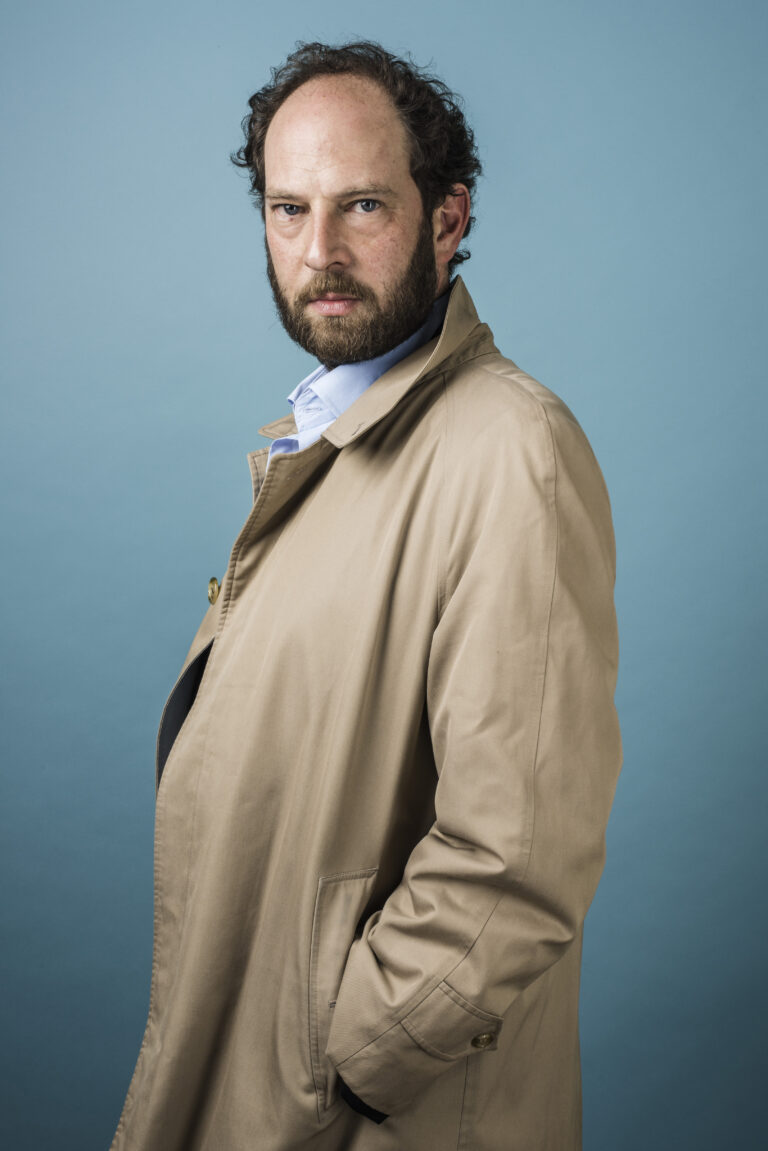Delphine de Vigan’s tenth novel, entitled Kids Run the Show, is the story of Mélanie Claux Diore—an influencer by proxy—and Clara Roussel, a largely screen-adverse law-student-turned-cop, specializing in evidence analysis. Opposites in almost every way, the women are the primary point-of-view characters, unspooling a narrative that starts in 2019, when Melanie’s daughter disappears during an outdoor game of hide-and-seek in the Paris suburb of Châtenay-Malabry.
But, first, we get a little backstory.

As a young woman, Mélanie Claux, in lieu of a talent or an interest (or even much of a personality), has one desire: She wants to be on a reality TV show. She likes watching such shows and imagines that an appearance on screen will give her what her mother never gave her: a sense of value. Though her freshman effort, on a show called Meet You in the Dark, quickly fizzles, Melanie eventually finds success not on reality TV but through social media and then YouTube.
With Facebook as her gateway drug, Melanie first discovers she likes “likes.” Later, now married with children, Mélanie starts documenting and then uploading videos of her two cute kids and their unextraordinary days. These videos, accompanied by Mélanie’s cringe-y off-screen platitudes, eventually become Happy Recess, a YouTube channel and success story. It’s a form of child-exploitation that morphs into real riches for Mélanie’s family, thanks to product placement bucks, which are achieved by Mélanie’s penchant for capitalism-inspired adventures for her children. She (and her husband) document the children at amusement parks, opening boxes with toys, taste-testing Oreo flavors, or grabbing (and being allowed to keep) everything that they pull from a store’s shelf that starts with a certain letter.
Meanwhile the other main character, Clara, has opted out of parenthood, marriage, and most social engagements. She’s not focused on ego-gratification but, instead, the purest kind of police work, which she perceives as a chance to see “blood, horror and Evil closer up.” Not that she likes gore. She’s not that kind of viewer, just inclined to look directly at the present moment. She does her work diligently even though she believes that “a deep, silent, insidious mutation of unprecedented violence” is occurring and “a disastrous threshold” is “being crossed in the great march of time—and no one could stop it.” That scary world is not even the criminal world. It’s simply “the times,” which seem “resolutely hostile” to Clara.
Both a thriller and a commentary on what social media over-exposure does to a growing child, de Vigan suggests that the desire for validation makes people interested in appearing on reality TV or becoming influencers. Or that maybe having been denied reasonable validation (or lacking an actual skill), one hangs on the pleasure of the outsized validation that comes with self-exposure. When you combine AI, virtual reality, and surveillance capabilities with social media and an enthusiasm for reality TV, the only beneficiary will be capitalism. Individuals? They’ll become screen addicts, predatory viewers, or unwilling performers, in a world where person and persona merge.
Alison Anderson’s translation from the French is smooth and lucid, making Kids Run the Show a quick read. The virtues of the propulsive narrative of the “police procedural” that occupies four-fifths of the book, and the semi-satirical close, which introduces a doctor who specializes in pathologies related to social media, AI, and virtual reality, a Freudian who lives in a world of facial recognition, secret recordings, and a voice assistant he calls Jacques Lacan, instead of Siri.
In the end, the story is suspenseful, a plotty page-turner with multiple twists and chapters that frequently end on cliffhangers. As such, the novel resembles (ironically) a binge-worthy TV series, offering the same perverse pleasures as a late night spent scrolling on YouTube.
Debra Spark’s newest novel, Discipline, comes out in March, and is available for pre-order now.






